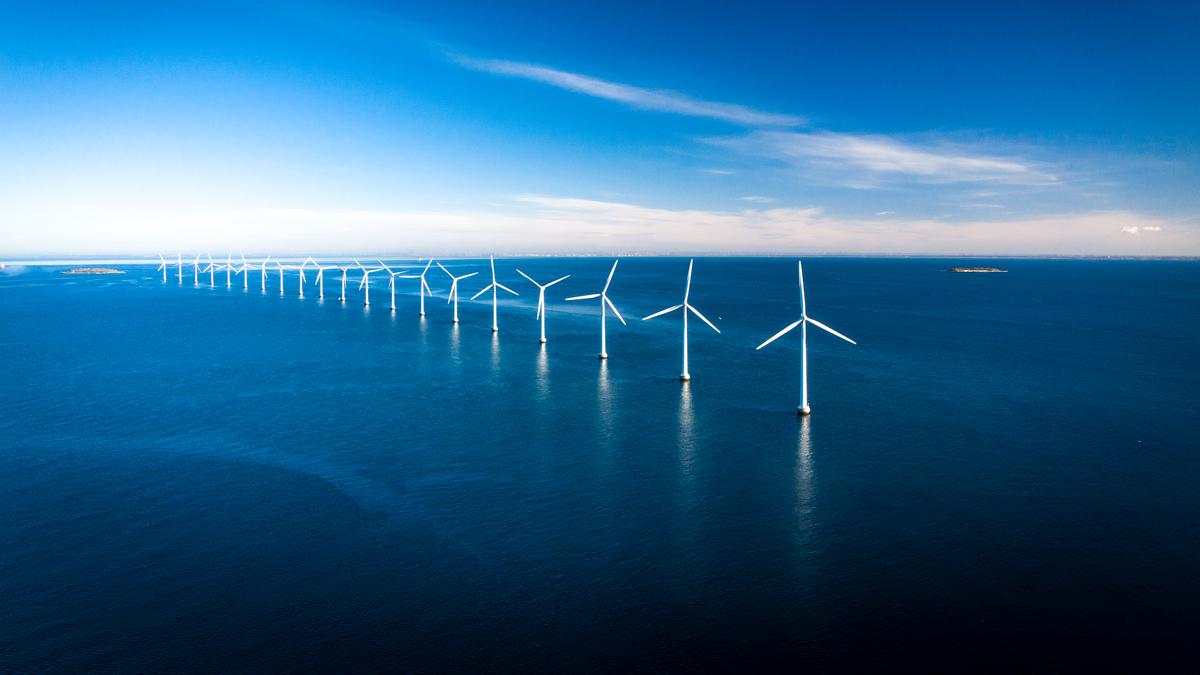Live Classes

Over the last decades, Nordic countries have been pioneering green technologies. Together, the Nordics and India can power the green transition the world needs. The thought of the Nordic countries might evoke different things to an Indian. Snow, fjords, lakes, and northern lights are definitely things we have plenty of.
Nordic Countries' Efforts and Objectives
Connecting with India
However, the Nordic countries alone cannot deliver the green transition the world requires. Together, the Nordics and India can deliver key technologies and solutions to stop climate change and boost green growth. At the Nordic-India Summit to be held in Copenhagen in May 2022, the five Nordic Prime Ministers and Prime Minister of India Narendra Modi agreed to intensify cooperation on four areas-
The Prime Minister of India expressed interest in joint Nordic solutions that can support India's green transition. Keeping this in mind, the trade ministers of Norway and Finland are visiting India together (February 9-10). During his visit, he aims to showcase the added value the partnership can bring to India and learn from the impactful innovations and digital solutions being developed in India. As well as business delegations and companies leading the way in areas such as clean energy, circular economy, digitalisation, tourism and the maritime sector. Who has a big ambition to increase cooperation with India.
Trade links that can grow
There are now 240 Norwegian and Finnish companies in India. The past year has seen a significant rise in trade and investments between Finland and India, and India has grown to become a priority country for Finland. A great illustration of this is that Finland opened a new Consulate General in Mumbai, which will be inaugurated tomorrow (February 10). This further increases the number of Nordic representations in India’s commercial capital and will contribute to strengthening IndiaFinnish ties.
Several Indian companies are looking towards Finland for its expertise in areas of technology and innovation, sustainability, digitalisation, carbon neutrality and more. An increasing number of Indian students, researchers, and experts have been moving to Finland as well. Finnish companies such as Nokia and Fortum see India as their largest growth market now and have some of their most significant investments in India.
Trade between Norway and India has doubled in the last three years. The Norwegian Sovereign Wealth Fund is likely to become one of India’s largest single foreign investors (around $17.6 billion). The Norwegian government has also recently established a new Climate Investment Fund for investments in renewables abroad, and India has been defined as a focus country. Almost ?1,500 crore have been invested so far in India through the climate investment fund, and the number of investments is increasing rapidly. However, there is still significant untapped potential for trade and further collaboration.
India's FTA with Norway and Finland
Both Norway and Finland have ongoing free trade agreements and investments negotiations (FTA) with India. Finland, as a member of the European Union (EU), is a part of the EUIndia FTA negotiations, and Norway is negotiating through the European Free Trade Association. Finalizing the free trade and investments agreements with India is a priority for us. There are very few issues that are outstanding, and we are convinced that it should be possible to conclude negotiations swiftly.
The Indian Minister for Commerce and Industry, Piyush Goyal, has stated that today’s trade agreements must be fair, equitable and balanced. We very much agree with these perspectives. This is a priority for us too. Our trade agreements have an ambition to be comprehensive and mutually beneficial.
Conclusion
Exchanges between India and the Nordic countries are of a different nature. In addition, trade in services is an area of significant potential, especially with tourism, education, IT, energy, maritime and financial services. As India takes rapid strides into a green, digital, and innovative future, Nordic countries such as Finland and Norway stand ready to share experiences and be a part of India’s transition. Although we are significantly smaller than India population wise and are located on the other side of the globe, we do have world leading technologies and expertise to offer. Technologies and innovations that are successful and are scaled up in India can easily be transferred to other parts of the world. Together, the Nordics and India can be the powerhouse of the green transition globally.
Linear Economy
Our current economic model has been 'linear'. Linear means that after the raw materials used to make a product are used, the waste (such as packaging) is discarded. Since 1950, more than 6 billion tonnes of plastic have ended up in nature, either incinerated or buried in soil. Given that there will be a need for sufficient raw material for food, shelter, heating and other needs in the future. In such a situation, it is very important for the economy to be circular. That is, reducing waste by making and reusing products and materials more efficiently.
Circular Economy
In an economy based on recycling, used materials are reused. For example, waste glass is used to make new glass and waste paper is used to make new paper. This is called circular economy. It includes the 3R [Reduce, Reuse and Recycle], i.e. Renew, Recover and Repair materials. Thus, the circular economy focuses on increasing productivity in terms of more efficient use of resources.
Nordic Nations
The Nordic countries are a group of countries in Northern Europe. In which 5 countries come namely Denmark, Sweden, Norway, Finland and Iceland.
Importance of Nordic countries for India
The Nordic countries collectively represent an economy of over $1.6 trillion. The total bilateral trade in goods and services between India and the Nordic countries is $13 billion. All of these countries are among the top achievers in many areas of human endeavour, particularly innovation, clean energy, green technologies and education.
Download pdf to Read More